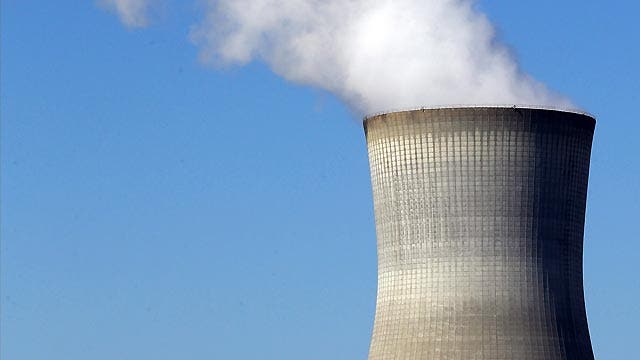US nuclear reactors at risk of terror attacks?
New study shows plants are vulnerable to terrorists
Security at the nation’s nuclear facilities is vulnerable to terrorist attack, a Pentagon-commissioned study reported Thursday.
What’s more, it said potential terrorist theft of enough nuclear material to construct an improvised fission bomb “is a real possibility."
The study by researchers at the University of Texas stands in profound contrast to what the nuclear industry says about its own safeguards.
The Nuclear Energy Institute says that in the aftermath of 9/11, the industry undertook a massive re-assessment of its plant security and bolstered protections. It reports the typical plant features a fenced outer security perimeter, which is heavily patrolled; an inner double fence topped with razor wire, also heavily patrolled; and a third layer of protection surrounding vital equipment.
The containment vessel itself has its own protection with multiple layers of steel and concrete.
One NEI official told Fox News that after 9/11, computer testing was done simulating the direct impact of a Boeing 767 into a containment vessel. The tests found that concrete was broken, but there was no radiation release.
Prof. Alan Kuperman, one of the authors of the University of Texas report, says a study by the U.S. National Laboratory in 1982 produced different results. "It found an impact of an airliner would breach the containment, which could lead to a loss of coolant and therefore a meltdown, and therefore a release of major levels of radiation," he said.
He added that while the Nuclear Regulatory Commission said its reactors could withstand such an impact, the industry lobbied against requiring such standards.
"So on the one hand, the industry says, "Oh, our facilities can withstand an airplane impact," but on the other hand, they say, "no, no no, don't regulate and require us to be able to withstand that impact," he said.
The new study acknowledged a history of widely divergent research about the likelihood of a terrorist attack on nuclear facilities.
One skeptic puts the likelihood that a terrorist group will acquire a nuclear weapon at "very substantially less than one in a million," it said. But another researcher "estimates a 50 percent chance of a nuclear terrorist attack on U.S. soil in the next decade."
The report found tremendous variation in how facilities are protected, and calls for greater uniformity of security at all nuclear facilities, whether power plants, places where nuclear weapons are stored, or where fissile material is stored.













































